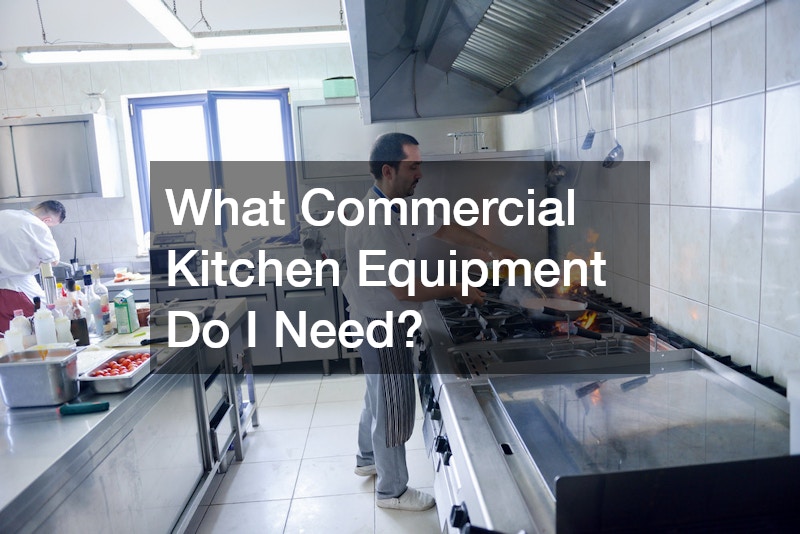
Opening a commercial kitchen requires careful planning, especially when it comes to selecting the right equipment. The success of your business depends heavily on having the right tools to prepare, cook, and store food efficiently. Here’s a breakdown of the essential commercial kitchen equipment you’ll need.
Cooking Equipment
At the heart of any kitchen is the cooking equipment.
A commercial range or stove is indispensable for cooking various types of food. Depending on your menu, you may need gas or electric ranges. Additionally, a griddle and charbroiler are crucial for high-heat cooking, ideal for making grilled items, burgers, and steaks. For establishments serving baked goods or pizzas, a commercial oven or pizza oven is essential.
Refrigeration Equipment
Proper storage is key to maintaining food freshness and safety. A walk-in refrigerator or reach-in cooler is necessary for large-scale storage, especially in high-volume kitchens. Additionally, undercounter refrigerators provide easy access to ingredients during food prep. Don’t forget about freezers for storing frozen goods and ice machines if you serve drinks.
Food Preparation Equipment
Efficient food prep equipment can make a significant difference in how quickly meals are prepared. Commercial mixers are a must for bakeries or pizzerias, while food processors and blenders are essential for tasks such as chopping, mixing, and pureeing ingredients. A commercial slicer ensures consistent cuts for meats and vegetables.
Cleaning and Sanitation Equipment
Sanitation is paramount in any commercial kitchen, and proper cleaning equipment is essential for maintaining a hygienic environment. A commercial dishwasher saves time and ensures all dishes are sanitized properly. Three-compartment sinks are typically required for washing, rinsing, and sanitizing utensils. Don’t forget to install handwashing stations to ensure staff maintain proper hygiene.
Storage Solutions
To keep your kitchen organized, invest in quality shelving units for dry storage areas. Food storage containers and labeling systems are crucial for keeping ingredients fresh and preventing cross-contamination.



